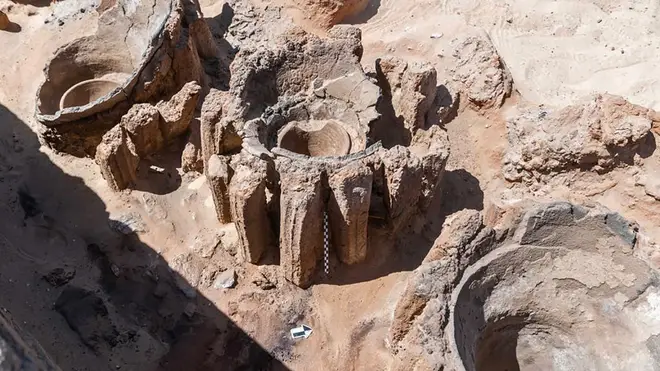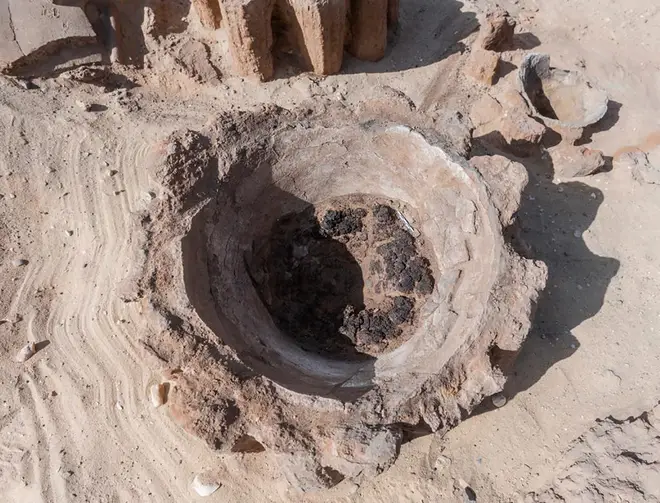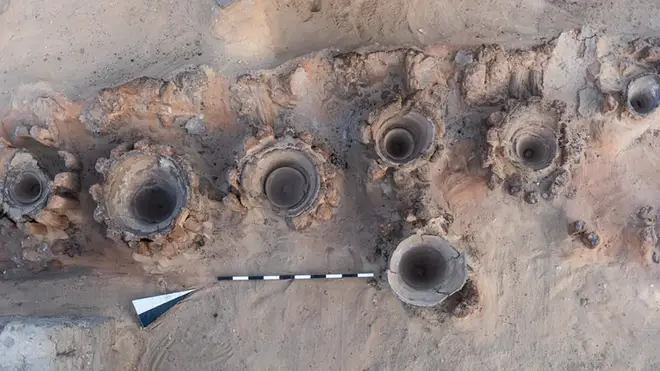
Paul Brand 1pm - 4pm
14 February 2021, 13:52 | Updated: 14 February 2021, 13:57

Archaeologists have uncovered what could be the world's oldest known beer factory at one of Egypt's most prominent ancient historic sites.
American and Egyptian excavators made the fascinating discovery more than a century after British archaeologists first mentioned the brewery in the early 1900s. But back then, researchers were unable to establish its location.
The factory was unearthed in Abydos, an ancient Egyptian burial ground located in the desert, west of the Nile river and more than 280 miles south of the capital, Cairo.
It is believed to date back more than 5,000 years, said Mostafa Waziri, secretary general of Egypt's supreme council of antiquities.
If so, the beer factory would have existed during the reign of King Narmer, who is heralded for his unification of ancient Egypt at the start of the First Dynastic Period (3150 BC-2613 BC).
Researchers found eight large units, each around 65ft long - roughly the same length as a cricket pitch - and 8ft wide.
Read more: UAE's Hope space mission sends first pictures of Mars

The units each include around 40 pottery basins lined up in two rows, which Mr Waziri said would have been used to heat up a mixture of grains and water to produce beer.
Dr Matthew Adams of the Institute of Fine Arts, New York University, and Deborah Vischak, assistant professor of ancient Egyptian art history and archaeology at Princeton University, co-chaired the joint mission.
Around 22,400 litres of beer would have been made by the factory, Dr Adams said.
He added that the brewery would have been built in this area to provide royal rituals with beer.
This theory is based on the fact archaeologists found evidence showing the use of the tipple in sacrificial rites of ancient Egyptians.

Abydos - with its expansive cemeteries and temples from the earliest times of ancient Egypt - was known for monuments honouring Osiris, the god of the underworld and the deity responsible for judging souls in the afterlife.
The necropolis had been used in every period of the country's early history, from the prehistoric age to Roman times.
Egypt has announced dozens of ancient discoveries in the past couple of years, in the hope of attracting more tourists.
The tourism industry has been reeling from the political turmoil following the 2011 popular uprising that toppled long-time autocrat Hosni Mubarak.
The sector was also dealt a further blow last year by the coronavirus pandemic.